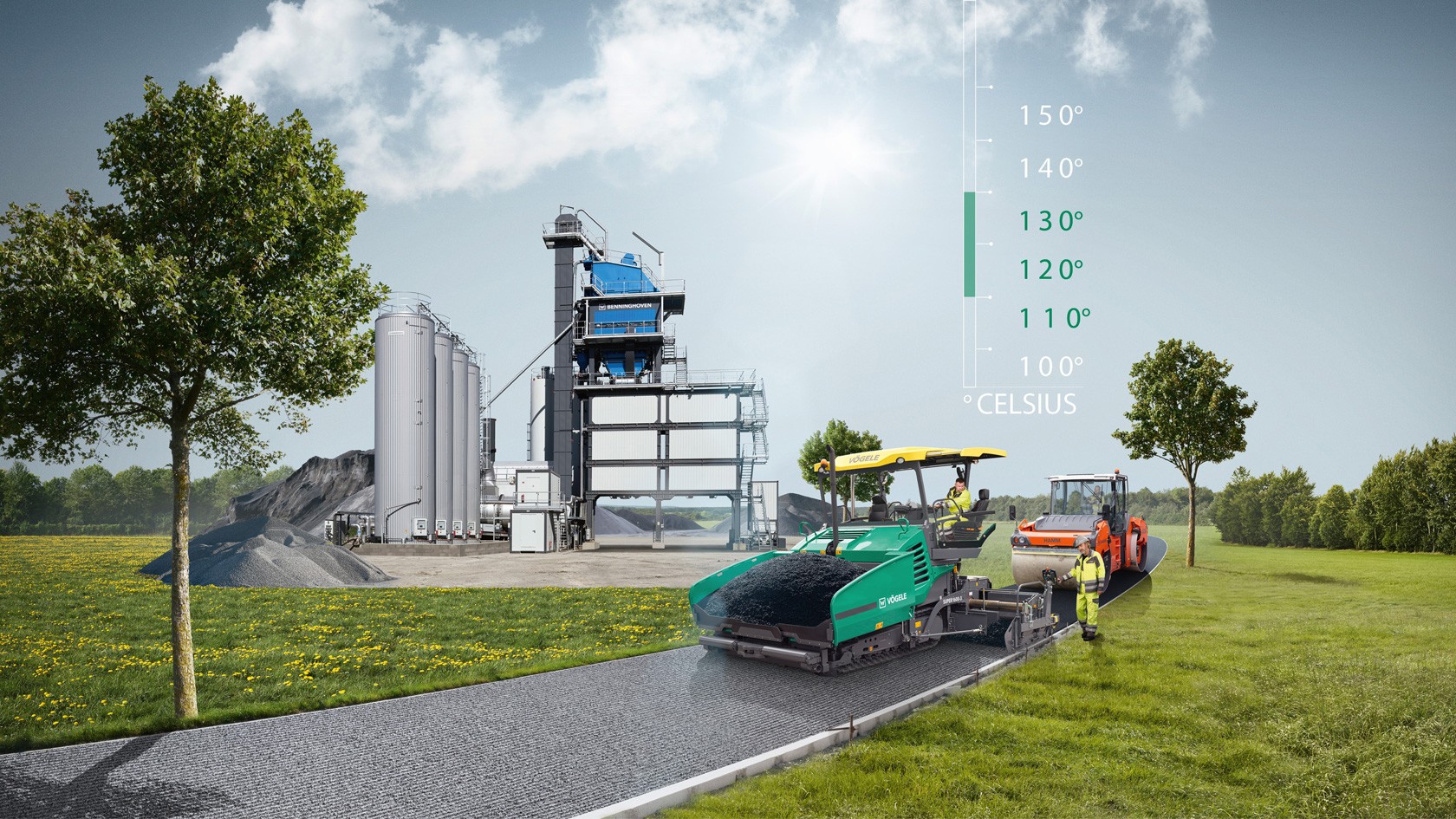WITOS Paving Plus: For Extremely Reliable Logistics and Paving Processes
When processing reduced-temperature mixes, job site logistics play a particularly important role. This is because the greatest challenge on the job site is the window of time available for compaction – low-temperature asphalts, in particular, become increasingly resistant to compaction as their viscosity increases, so it is essential to complete the process at the highest possible material temperature. Because these asphalts are produced at a lower temperature, however, the gears during transport and on the job site need to mesh with each other perfectly in order to give the rollers as much time for compaction as possible.
WITOS Paving Plus offers valuable tools to successfully manage these complex processes and thus achieve high-quality results. WITOS Paving Plus is an integrated process optimization and documentation system solution from Vögele consisting of five complementary modules for the various individuals involved in the process – from the mixing plant operator and truck driver to the site manager.
Telematics Solution Facilitates Reduced-Temperature Asphalt Paving Process
The Materials and Transport modules are of particular importance on low-temperature asphalt job sites. WITOS Paving Materials integrates the mixing plant into the system, allowing mix to be ordered dynamically – the system sends a notification when a mix truck is due to leave for the job site. The delivery documents are also sent digitally to the site manager in advance. If a mix truck is on its way to the job site, the WITOS Paving Transport module reports its expected arrival time. Site managers receive this and other information in the WITOS Paving JobSite module. As a result, they always know how many tons of mix are currently on the road and can react quickly to the current logistics situation. This makes it easy to keep the paving process flowing – and with it, compaction.
How to Monitor and Document Temperature during Paving
Another Vögele solution, RoadScan, is now widely used to monitor and maintain a constant temperature range of the mix. In the process, an infrared camera measures the temperature of the entire area behind the road paver’s screed across a width of 10 m with extreme precision. The benefits are especially clear when using reduced-temperature asphalt – the system makes paving quality measurable and verifiable by measuring and documenting the temperature immediately after paving, which can be important, for example, in the event of an inspection by the client.
